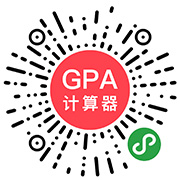海茨中学介绍:
据留学360澳洲部金牌留学顾问唐功正老师介绍, As part of our ongoing effort to improve our curriculum, this past year Heights faculty and administrators worked together to carefully study our history curriculum. It was our hope that this task would help us deepen our commitment to a narrative approach to the study of history, reinforce the human value of studying history as an integral part of a liberal arts education and identify improvements for our history curriculum. I am pleased to report that all of these goals have been accomplished. Our many hours of discussion, study, writing and reflecting will hopefully pay off for years to come.
It is impossible to take a careful look at the teaching of history at The Heights without noticing certain characteristics of our approach, that while certainly not unique are perhaps not common today. At The Heights history is taught primarily as a narrative: that is, as a story of what has taken place. This is not to say that there is not room for careful analysis of diverse factors, whether economic, political, social, moral, intellectual, religious, technological, environmental or other. In our approach, however, we refuse to allow the study of history to be reduced to any one factor and insist on having a fundamental openness to all the elements that go into understanding the rich heritage of our human past, our common history. Thus, for example, not only will we refuse to be seduced to seeing history in merely economic terms, as the struggle of different classes of people, as is common in Marxist approaches, but we will insist that history cannot be understood without recognizing that there is a role played by persons exercising their freedom for good or evil. Included in the study of history are many heroes and villains, who through their decisions have had a tremendous impact on the world and its current structures. For this reason there is a healthy bias at The Heights against a too overly textbook oriented approach to history in favor of also reading well-written and researched biographies as well as various primary source materials. The ongoing faculty study of the past year has reinforced the value of this approach and deepened our commitment to a narrative approach to the study of history.
From this starting point, it is not difficult to see just how important the study of history is for a liberal arts education. It is impossible to understand the world we live in today in a manner detached from its past. Part of the reality that is around us is the past. As citizens of our country, our world and of Western Civilization we cannot embrace reality as fundamentally good and worth knowing without delving into a careful study of the past. In this context the famous assertion of G. K. Chesterton comes to mind: that he values democracy because he is a traditionalist, that he believes in the right of all men to have a say, even those who are separated from us by the accidental condition of death.
To further this vision and improve our history curriculum we have decided on some important changes starting in the 2012 - 2013 school year for each school: lower (3-5), middle (6-8) and upper (9-12). In the lower school, the narrative of history is necessarily taught in a manner that respects the developmental needs of young boys. Prior to 3rd grade children primarily learn history from their families. As parents and older siblings explain aspects of the world to young children they invariably talk about the past, explaining such things as how people from Europe came to settle in the New World and how they farmed the land and survived. Over time children come to see and understand the outlines of the nation and civilization of which they are a part. In the lower school years the approach to history will naturally build upon this developing worldview, building upon what is concrete and immediate. Boys this age value simple paradigms; they tend to see people and events as either good or bad and will look at their country and the western world as fundamentally beneficent extensions of their homes. Educators need to respect this outlook and not be too quick to critique heroes or redeem villains. Likewise, there is a sense in which it is fine to learn first why a civilization is great before studying its shortfalls. For this reason the lower school history program has always been focused on studying the familiar, a key reason why it has been mostly focused on US History. Starting in with the 2012 - 2013 school year, the curriculum will broaden to include more of western civilization but the focus on learning about this civilization in its positive aspects, as first and foremost our civilization, a civilization we can respect and love, will not change. The curriculum for each grade is as follows:
Classical Antiquity from 8th century B.C. to 476 A.D. (3rd grade)
Focus on Ancient Greece and Ancient Rome up to its fall
Rich in stories about such people as Pericles, Archimedes, Alexander the Great, Hannibal, Julius Caesar, Constantine and Attila the Hun
Themes of the course include the Spartan Army, Gladiators and Roman slaves, the Roman Army, Democracy in Athens and Rome, how a Roman city was built and various inventions
A careful study of the geography of the Mediterranean world will begin with learning the continents and oceans. Students will also study some North American geography, including states and capitals.
Texts include ample primary source material and stories about persons and events, as well as the book The Story of the World (Bauer)
The Middle Ages from 476 to 1453 A. D. (4th grade)
Focus is on the spread of Christianity throughout Europe, the Norman Conquest, the Crusades and the Hundred Year‘s War
Rich in stories about such people as Charlemagne, Alfred the Great, Eric the Red, El Cid, Henry II, St. Dominic and St. Francis.
Themes of the course include the Franks, Vikings, Ottoman Turks, Medieval Knights and Castles, monastic life and various inventions
The geography section of the course will focus on Europe, including political and historical boundaries and major rivers and mountains
Texts include ample primary source material and stories about persons and events, as well as the book The Story of the World (Bauer)
Age of Discovery and the Birth of Our Nation from 1492 to 1783 A.D. (5th grade)
Focus is on the exploration and colonization of the New World, the French and Indian War, the Revolutionary War and the establishment of the republic
Rich in stories about such people as Christopher Columbus, Cortez and Montezuma, St. Isaac Jogues and the Founding Fathers
Themes of the course include inventions (Guttenberg Press, gunpowder, compass), humanism, explorers and conquistadors, French missionaries and American Republicanism
The geography section of this course will review US states and capitals and cover Central and South America.
Texts include ample primary source material and stories about persons and events, as well as Our Pioneers and Patriots and This Country of Ours.
The study of history in the middle school years begins by exploring the great achievements of those who have come before us and gradually leads to a more critical analysis of the complexity of the past. It is our hope that this deeper and more critical study of all aspects of human relations will purify rather than replace the simple piety that lower school boys so naturally develop toward their family, community, country and tradition. In any case, the true heroes of the past show up with greater definition as one understands the complexity of the challenges they faced. The curriculum for each grade is as follows:
The birth and early development of the United States of America (6th grade)
Focus is on the American Revolution, the growth and westward expansion of the United States, the conditions leading up to the Civil War, and the Civil War
Rich in stories about the lives of mountain men, traders and trappers, the voyages of Lewis and Clark, founding fathers and the great Civil War leaders on both sides
Themes include the constitution, religious liberty, the plight of the immigrant laborer, the impact of industry, transportation (canals and the railroad), slavery and the tension between federal and state powers
The geography section of the course covers North America and includes political (countries, states, capitals), historical (boundaries during westward expansion) and topological (mountains, rivers, plains, tundra)
Texts include ample primary source material and stories about persons and events
American History from the Civil War through World War II (7th grade)
Focus is on an in-depth study of the Civil War, the period of Reconstruction, World War I, the great depression and an in-depth study of World War II
Rich in stories about the great leaders throughout this period, as well as various heroes
Themes include federalism vs. states rights, technological and military developments, and the foundations of the current world political situation
The geography section of the course strongly focuses on Europe, North America and the Pacific
Texts include ample primary source material and stories about persons and events, as well as Great Battles of World War II (Mann)
Ancient History (8th grade)
Focus is on Ancient Egypt, Ancient Greece and Rome up through the 2nd century A.D.
Rich is stories about mythology, life in ancient Sparta and Athens, great thinkers of the Ancient world, wars (Persians vs. Greeks, Rome vs. Carthage), the Roman way of life and such persons as Cicero and Julius Caesar
Themes include the foundations of western civilization and culture, philosophy, types of government: democracy, republic and totalitarian rule, and inventions
The geography of the ancient world is studied
Texts include ample primary source material and stories about persons and events, as well as Ancient and Medieval Worlds (Howe and Howe)
The study of history in the upper school continues to highlight the great accomplishments of the past and our indebtedness to those on whose shoulders we stand. At the same time students are led to analyze events and developments from diverse perspectives: political, economic, cultural and intellectual, to name just a few. Well grounded teachers seek to mentor the boys so as to prevent them from narrowly embracing any one paradigm, so the students grow in appreciation of the rich complexity of the past and the human condition. In this way students come to appreciate their place in the world around us and have the tools to understand what is happening around us. A purified respect for the western tradition with its political institutions and cultural achievements leads to the formation of young men equipped and ready to enter into the responsibilities of mature citizenship. The curriculum for each grade is as follows:
Medieval and Early Modern History (freshmen year, part of the 9th grade core)
Focus is on the transition from the Roman Republic to the Roman Empire, the growth of Christianity, the fall of the Western Roman Empire, Byzantium, the Medieval period, the Renaissance, the Enlightenment, the Protestant Reformation and the development of modern nation states up through Napoleon
Students are introduced to a more careful study of the cultural and intellectual developments of this time period
Themes include the development of western civilization, the synthesis of western political and cultural institutions with Christianity, the revolt against this synthesis, truth vs. power as paradigms to understand reality and the seeds of modern democratic and totalitarian states
Readings include ample primary source documents, historical novels (Quo Vadis and Empires of the Sea as summer reading) as well as Ancient and Medieval Worlds (Howe and Howe) and The Modern World(Flory and Jenike)
Sophomores choose 1 of the following 3 courses:
US History and Government - elective course that explores in great depth the development of the United States of America and its political institutions
US History AP - college level course that US History from 1492 to the present. This course has a strong focus on writing essays that analyze developments from different perspectives.
Modern European History AP - college level course that covers the period from roughly 1450 A.D. to the present
Juniors choose from any history elective in the history department. Elective options include (every class is not offered each year): World War II History, French History, Russian History, Cold War History, US History AP, US Government AP, Modern European History AP, Art History AP and Economics AP.
History of Western Thought (required senior history course)
Beginning with the 2012 - 2013 school year this course will be the required history course for all seniors.
This capstone course will explore the intellectual and cultural developments that have been so decisive in the development of our contemporary world. Students will encounter such great minds as Plato, Aristotle, Cicero, St. Augustine, St. Thomas Aquinas, Descartes, Bacon, Mill, Locke, Hume, Kant and Marx.
In addition to understanding how ideas have had impacted culture and the shape of the modern world, students will also learn more about the realist philosophical tradition and how to defend the truth in this tradition in response to modern critics.
Armed with the truth and an understanding of common sources of error, students will be well prepared to enter the “marketplace of ideas” which major universities are today. Students will be equipped to recognize sources of thought behind common paradigms and will be better able to recognize what is true and good from what is false and harmful.
海茨中学凭借优质的教育水平使得越来越多的中国学生选择海茨中学,海茨中学也是留学360官方推荐的重要学校之一。在有意向留学海茨中学的学生中,2016年DIY申请也逐渐受到大家的关注。为了帮助学生们更好的自助申请留学海茨中学,留学360提供了如下指导内容。
海茨中学DIY留学申请流程
1.确定海茨中学专业
2.联系院校并沟通申请细节,提交在线报名信息http://www.liuxue360.com/application/
3.亲手填写申请材料并寄送海茨中学;也可以寄给留学360
4.准备签证材料,并完成递签(材料不齐可能有拒签风险);
5.完成行前心理及行李的准备;
DIY留学申请需注意
1.由于院校以及专业种类繁多,所以选择时,需要清楚的知道意向院校以及专业的具体内容,以及是否招收中国学生等其他特殊录取条件;
2.应届毕业生往往会面对如何申请澳洲无缝链接硕士课程的难题,所以尽早着手准备制定申请方案保证成功无缝链接。
3.当学生语言条件不符合院校录取标准时,可以按照各个学校不同的语言班开课标准协助申请正确的语言课程以及主课延期等问题。
4.当学校发出Offer时,如何正确接收Offer并交学费以换取COE是非常关键的。
5.澳洲学生签证的申请需要一定的专业知识以及经验,很多学生在自己DIY签证的时候,往往会漏掉很多材料,后续需要不停补件,更有甚者甚至被直接拒签;因此需提前将材料核对清楚,以免遗漏。
6.DIY留学辅导电话: 4008-941-360
选择DIY留学,不如选择留学360!免费,品质保障,拒签赔付!!留学360投资1亿人民币为DIY留学学生保驾护航!!!
留学360从事互联网留学办理,是全球免费留学领跑者,目前估值已经破20亿人民币。公司与美国、加拿大、英国、澳洲、新西兰、爱尔兰、瑞士、新加坡、马来西亚、泰国等30多个国家的800多家教育机构签约建立合作关系,协议覆盖了3000多所海外大中小学。拥有由百余位经验丰富的留学咨询专家组成的留学专家团,其中78.6%拥有海外名校留学背景,高效有序的留学咨询系统和安全快捷的后勤保障队伍,为留学生提供从咨询、申请、签证、接机及住宿等留学一条龙服务。历程8年,公司已为数万名中国学生提供了留学咨询和院校申请。公司总部设在上海,在英国、澳大利亚、新西兰、新加坡、马来西亚、泰国、瑞士、加拿大、美国、爱尔兰、德国、法国、挪威等国家设有境外办事处。
留学360高举互联网留学大旗,对留学行业起到了很大的冲击,所以不乏后来者,对于互联网留学项目来说,互联网申请留学是很容易模仿的点,但真正能体现留学360互联网留学价值的是十大极致服务,那么这十大极致服务有哪些呢?
1.“签证赔付”
由于我们的顾问老师平均3-10年留学申请经验,申请成功率达100%。CRM系统申请节点控制,每项申请材料均由经理级确认把关,确保申请全程无误。私人管家式服务,申请顾问、签证顾问等多对一全程负责。比传统中介更负责,比DIY更靠谱。
承诺:100%成功录取+100%全套服务+100%流程透明+100%互联网申请,签证拒签赔偿3000元。
2.“专车接送”
来上海坐机的朋友,提供互联网送机服务,车型:宝马750/奥迪Q7/宝马530/奥迪A6不等。
3.“来就送”
上门咨询,即送价值68元的英语学习教材一份。
4.“海外特产同分享”
微信分享成功办理经验,送海外特产(价值500元)
5.“银行护航,挣补贴”
与国有银行合作,指定银行汇学费,享受VIP服务+外汇汇率优惠+留学360补贴1000元,为未来海外学费团购铺路。
6.“语言培训互联网送”
公司办理的学生,享受公司推出的IELTS培训(保五争六,保六争七计划),并且有机会获得海外知名大学语言证书。
7.“就业落户有捷径”
针对优秀的学生,海外学成归沪,我们协助安排就业,指引如何落户上海、北京,我们与很多商会企业保持密切合作。
8.“努力学习享受生活”
针对在校成绩75%以上的学生,并愿意宣传留学360文化的学生,公司将提供在上海的接机业务。
9.“置业有优惠”
在海外留学,如果需要购房,可以享受留学360与海外房产的折扣价,最少为您节省房价的1%。
10.“你留学我补贴”
留学360旗下的学生购买出国机票,每年补贴一次,以携程为指导价,每张国际机票均补贴2%;非留学360旗下的学生,每张国际机票补贴1%;每年补贴6万张机票。









 高考后留学澳大利亚
高考后留学澳大利亚 高考后澳大利亚留学申请
高考后澳大利亚留学申请 澳大利亚热门专业之工科
澳大利亚热门专业之工科 皇家墨尔本理工大学申请攻略
皇家墨尔本理工大学申请攻略







 澳大利亚国立大学
澳大利亚国立大学 悉尼大学
悉尼大学 墨尔本大学
墨尔本大学 新南威尔士大学
新南威尔士大学 昆士兰大学
昆士兰大学 蒙纳士大学
蒙纳士大学

